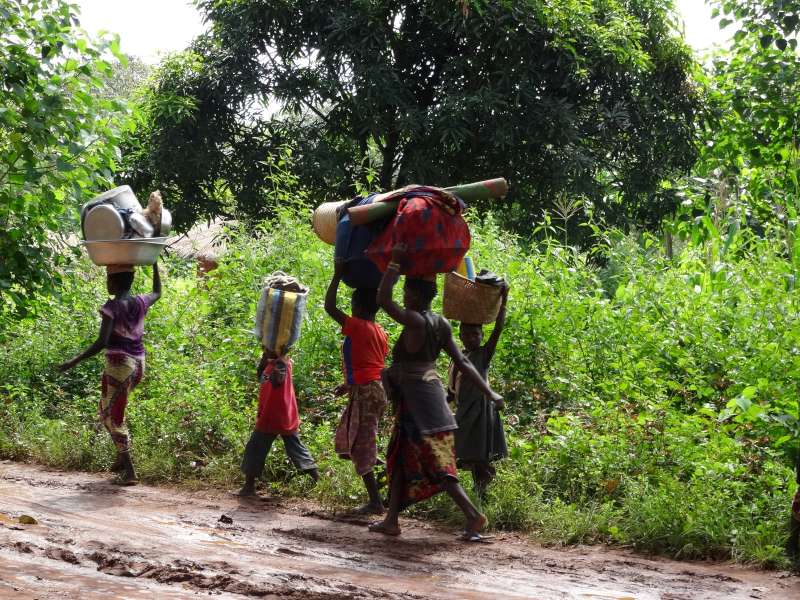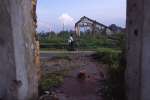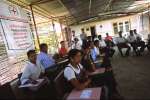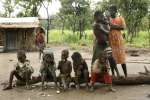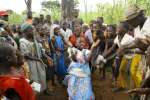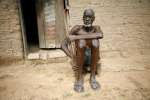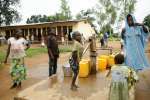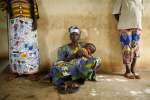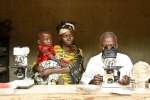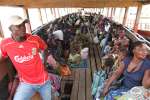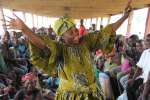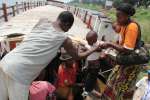- Text size
 |
|  |
|  |
| 
- عربي
Human Rights Day: Abuses rife in Central African Republic
News Stories, 10 December 2015
BANGUI, Central African Republic, Dec 10 (UNHCR) – Three years after the start of the current wave of violence and persecution in Central African Republic, insecurity and human rights abuses remain rife, with minorities at particular risk.
Based on UNHCR monitoring, an estimated 6,000 cases of human rights violations were recorded in the first 10 months of this year. This works out at about 20 incidents a day, each representing one or more people who were victims of violence and abuse, including some of the country's 447,000 internally displaced.
The true figure is likely much higher, but UNHCR and partners cannot access many areas and many victims do not report rights abuse. An estimated 70 per cent of the cases are related to clashes and reprisals between armed groups.
Additionally, more than 60,000 cases of sexual and gender-based violence (SGBV) were registered during the same period by an inter-agency group headed by the UN Population Fund (UNFPA), of which about 30,000 involved victims of sexual violence, including rape. That is about 100 people a day.
UNFPA monitors the situation in 48 conflict-affected districts around Central African Republic. UNHCR and its partners run listening centres, micro-loan projects and literacy classes to help SGBV survivors get back on their feet. Other initiatives include medical care, legal assistance and community-based interventions.
The human rights situation had been improving during the year, especially in Bangui and other cities, compared to the inter-communal violence that erupted in December 2013, leaving 3,000 people dead. At the peak of the unrest, in early 2014, more than 930,000 people were displaced within the country – 450,000 still are.
But waves of violence since late September have left around 100 people dead and more than 70,000 displaced. A man was killed in Bangui's PK5 district the day after the landmark visit last week of Pope Francis, who visited a site for the displaced, met Muslims and Christians and called for reconciliation. UNHCR fears that such violence could intensify in the run-up to elections due on December 27.
UNHCR is also concerned about the situation of more than 36,000 people whose right to freedom of movement is being violated in seven urban enclaves such as the PK5 district that Pope Francis visited in Bangui. The situation for the 26,000 people in PK5, the only location in Bangui still hosting Muslim communities, has worsened since the violence in September.
Unable to come and go freely and in safety, earn a living, visit the market, in a district surrounded by armed gangs and militia but protected by UN peacekeepers, locals say they have been living under siege for the past two years and cannot take it anymore. They feel isolated and have called for humanitarian assistance for the most vulnerable. UNHCR believes that forced encampment is a grave violation of human rights.
Minority groups trapped in enclaves like PK5 should enjoy freedom of movement like other citizens. UNHCR believes a safe corridor should be put in place to allow for freedom of movement as well access by humanitarian workers.
Observers say the root causes, including the absence of a functioning and effective government able to provide protection, assistance and rule of law throughout the country, need to be addressed urgently. Issues such as the culture of impunity and disarmament also need to be resolved for lasting peace.
The conflict has also had a regional impact, with more than 460,000 Central African Republic refugees in Cameroon, Chad, the Republic of Congo and the Democratic Republic of the Congo. This includes some 220,000 who have fled since the violence of 2013-2014. Meanwhile, more than half of the population (2.7 million) is still in need of humanitarian assistance.
By Dalia Al Achi in Bangui, Central African Republic
